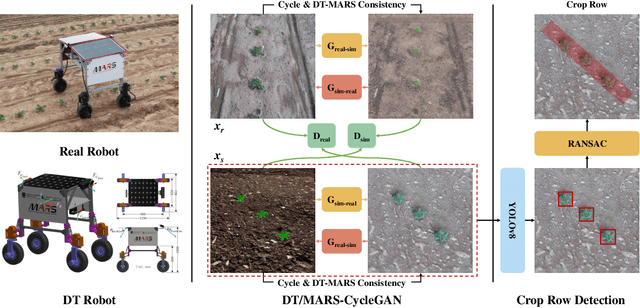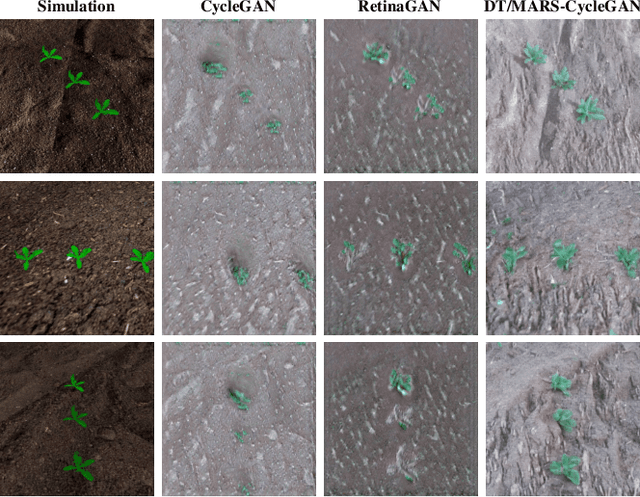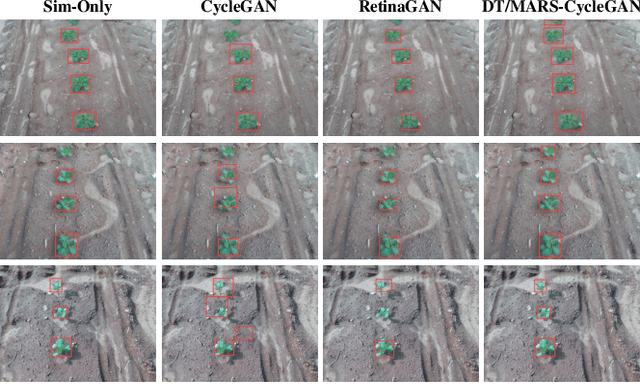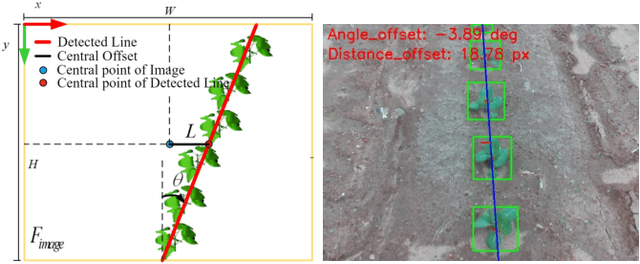DT/MARS-CycleGAN: Improved Object Detection for MARS Phenotyping Robot
Paper and Code
Oct 20, 2023



Robotic crop phenotyping has emerged as a key technology to assess crops' morphological and physiological traits at scale. These phenotypical measurements are essential for developing new crop varieties with the aim of increasing productivity and dealing with environmental challenges such as climate change. However, developing and deploying crop phenotyping robots face many challenges such as complex and variable crop shapes that complicate robotic object detection, dynamic and unstructured environments that baffle robotic control, and real-time computing and managing big data that challenge robotic hardware/software. This work specifically tackles the first challenge by proposing a novel Digital-Twin(DT)MARS-CycleGAN model for image augmentation to improve our Modular Agricultural Robotic System (MARS)'s crop object detection from complex and variable backgrounds. Our core idea is that in addition to the cycle consistency losses in the CycleGAN model, we designed and enforced a new DT-MARS loss in the deep learning model to penalize the inconsistency between real crop images captured by MARS and synthesized images sensed by DT MARS. Therefore, the generated synthesized crop images closely mimic real images in terms of realism, and they are employed to fine-tune object detectors such as YOLOv8. Extensive experiments demonstrated that our new DT/MARS-CycleGAN framework significantly boosts our MARS' crop object/row detector's performance, contributing to the field of robotic crop phenotyping.
 Add to Chrome
Add to Chrome Add to Firefox
Add to Firefox Add to Edge
Add to Edge